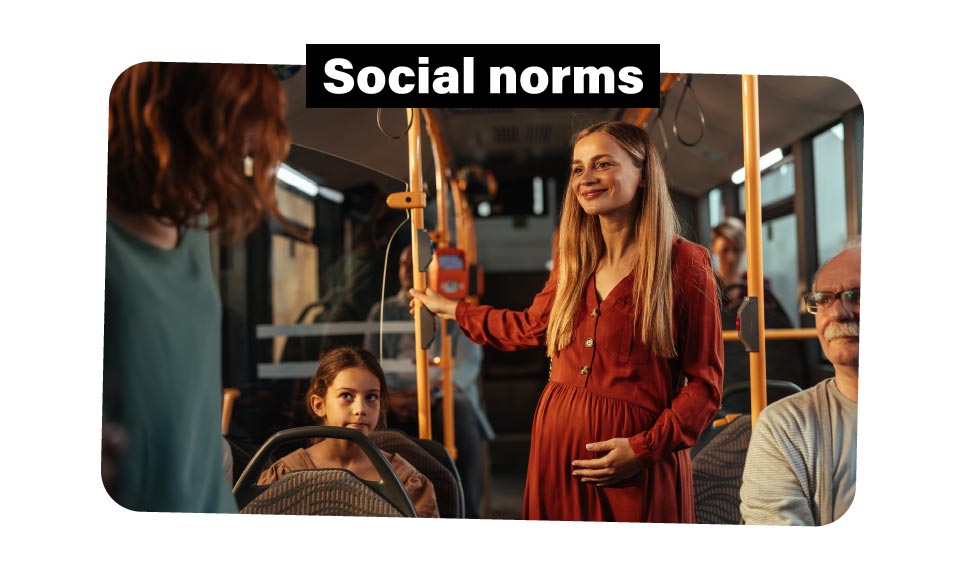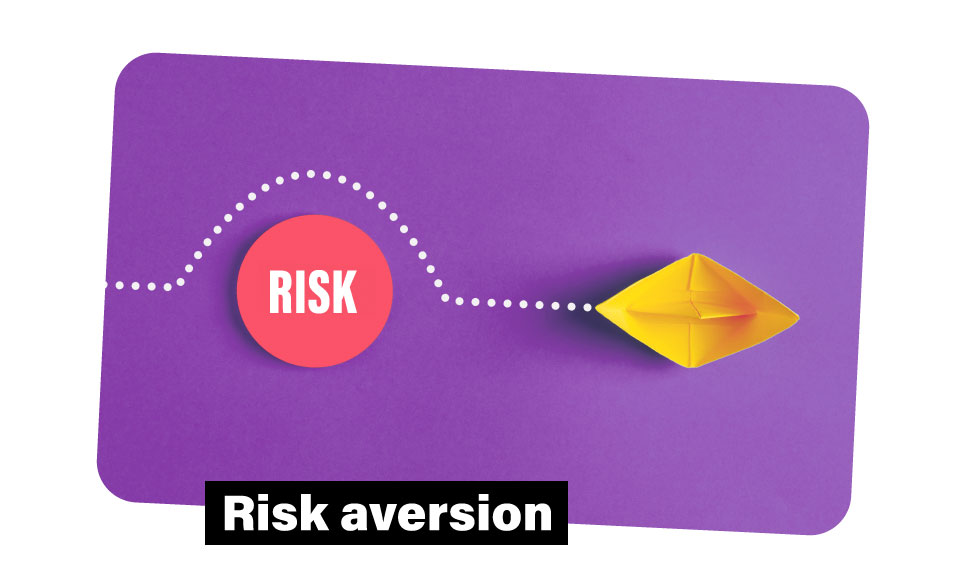
Using norms and defaults to stay active
We explore how to promote and sustain physical activity and exercise using behavioural science.
More +In this blog, we explore the concept of the Default Effect, a powerful tool in shaping human behaviour. We will delve into what the Default Effect is, why it is so influential, and how it can be effectively used to drive positive change in society.

The Default Effect is a behavioural occurrence where individuals are more likely to stick with the pre-selected option, status quo or default, when making a decision. This tendency occurs because selecting the default requires no action or effort, whereas opting out or choosing an alternative requires a deliberate decision. For example, choosing your usual meal at a restaurant because you know you like it.
This effect is rooted in different psychological and economic theories, such as the Status Quo Bias, a cognitive bias that describes people’s preferences for what they already have or what is presented as the norm. Inertia and Effort Aversion also contribute, as people tend to choose the default because it requires the least effort, making this option the easiest choice. Combined with inertia (the resistance to change) this keeps people from actively choosing an alternative.
Loss Aversion is a key concept in behavioural economics, and refers to people's tendency to prefer avoiding losses over acquiring equivalent gains. Changing from a default option might be perceived as risking a loss, especially if the default is framed as the safer or recommended choice. And lastly, Social Norms and Implicit Endorsement also contributes to the Default Effect, as the default is often seen as an implicit recommendation by the entity setting the choices, such as a government, company, or service provider. People may assume that the default is the socially accepted or "right" choice, leading them to stick with it.
Defaults are like the path of least resistance in decision-making. They are powerful because they tap into our natural tendencies: our aversion to effort, our preference for the familiar, and our trust in the status quo. When an option is set as the default, it often becomes the easiest choice, simply because it requires no extra effort to stick with it.
This doesn't make us lazy, but it’s kind of a way of conserving our mental energy. Choosing the default option is almost like setting our decision-making process to autopilot, often without us even realising it. It reduces cognitive load and stress, which is why defaults can have such a strong impact on our behaviour. Defaults can influence a wide range of decisions, from simple choices, like deciding how to have your burger at a new restaurant with friends, to more important decisions, like becoming an organ donor.
Defaults are so powerful because they can shape norms. When a default is set, it often gets perceived as the “correct” or “normal” choice. This social proof can reinforce the behaviour further, making people more likely to stick with it simply because it's the accepted standard.

Let's see how Defaults are used from everyday examples to more important life decisions.
Think about the last time you bought a phone. Did you go through and customise every single setting to your exact preferences? Or did you opt for the default settings to save time and effort? Most likely, you chose some default settings to avoid the hassle of adjusting notifications and other preferences for each app individually.
Now, thinking about online subscriptions. Many online services offer a default subscription plan that includes automatic renewal. For example, streaming services might automatically set up a recurring monthly payment by default, requiring users to actively choose to cancel or switch plans. This strategy means we need to go out of our way to change the default, which essentially requires more effort. These companies are taking advantage of how we conserve our mental energy, unconsciously.
A more important decision is becoming an organ donor. Many countries have implemented an opt-out system for organ donation. In these systems, everyone is automatically considered an organ donor unless they explicitly choose not to be. This default setting has significantly increased the number of organ donors, which shows the power of default in saving lives.

You might be wondering how can you use defaults to benefit your behaviour change and/or business operations, well here are some behavioural insights for you to consider.
To make the most out of defaults, it is useful to pair them with other behavioural insights. Pairing Default with Centre-Stage Effect is a good way of priming people into the best option. To do this, place the most desirable option front and centre. By reducing friction and making the preferred choice effortless, you can guide people towards better decisions with minimal resistance. This will simplify their choice and also increase the likelihood that they will go with the option you want to promote.
Another example is pairing Defaults with Risk Aversion. Risk aversion is a behavioural tendency where people prefer to avoid losses rather than acquire equivalent gains, essentially people are more motivated to prevent potential negative outcomes than to gain positive ones. So, when introducing new options or changes, frame them in a way that minimises the perceived risk of choosing them. Predefined choices should be designed to feel safe and familiar to guide people through the transition smoothly.
One last tip for using Defaults is to always use Behavioural Nudges. These are subtle changes in how choices are presented, like visual cues or reminders, positive framing or language changes to incorporate elements of social proof. Combine Defaults with these nudges to enhance their effectiveness, making the desired choice stand out and appear more appealing.
Defaults shape our behaviour by simplifying our decision-making and tapping into our natural tendencies to conserve mental energy and avoid effort. From everyday choices to critical decisions, defaults can make us choose the path with less resistance. By pairing defaults with behavioural insights, such as the Centre-Stage Effect, Risk Aversion, and subtle nudges, businesses and policymakers can guide individuals towards better decisions effortlessly.
Interested in behavioural science? Check out our Changemaker academy which hosts lots of guides and resources to help you understand people.

We explore how to promote and sustain physical activity and exercise using behavioural science.
More +
Download our Mini Guide to MINDSPACE today to understand how you can use behavioural insights to improve your customer engagement and satisfaction.
More +
Our Bitesize Guide to Behavioural Insights covers everything from defining behaviour to the six disciplines of behavioural science and how to distinguish influences from outcomes when it comes to behaviour change.
More +Enter your email address below to access the Academy and our Webinars